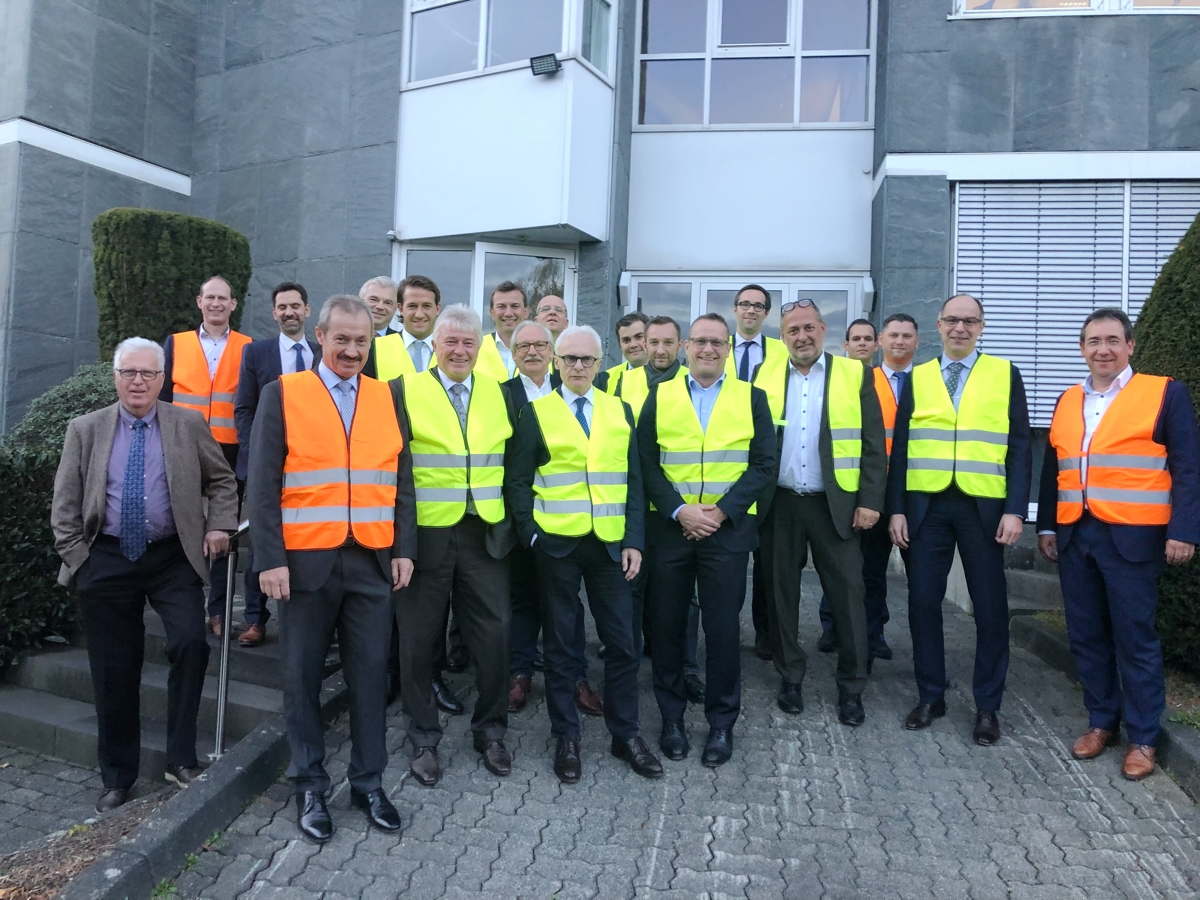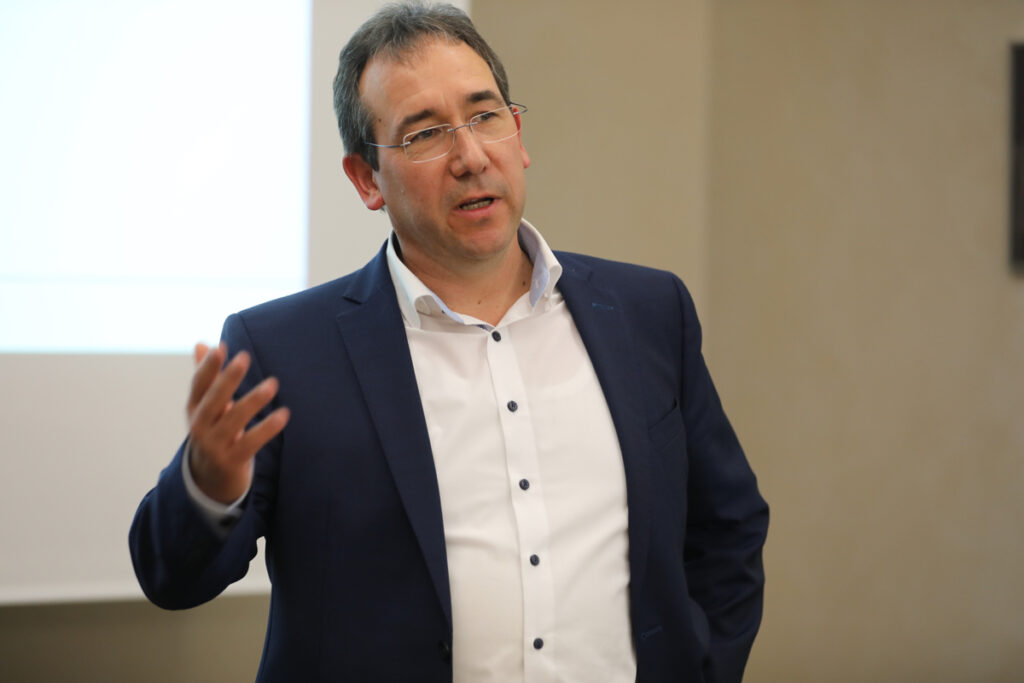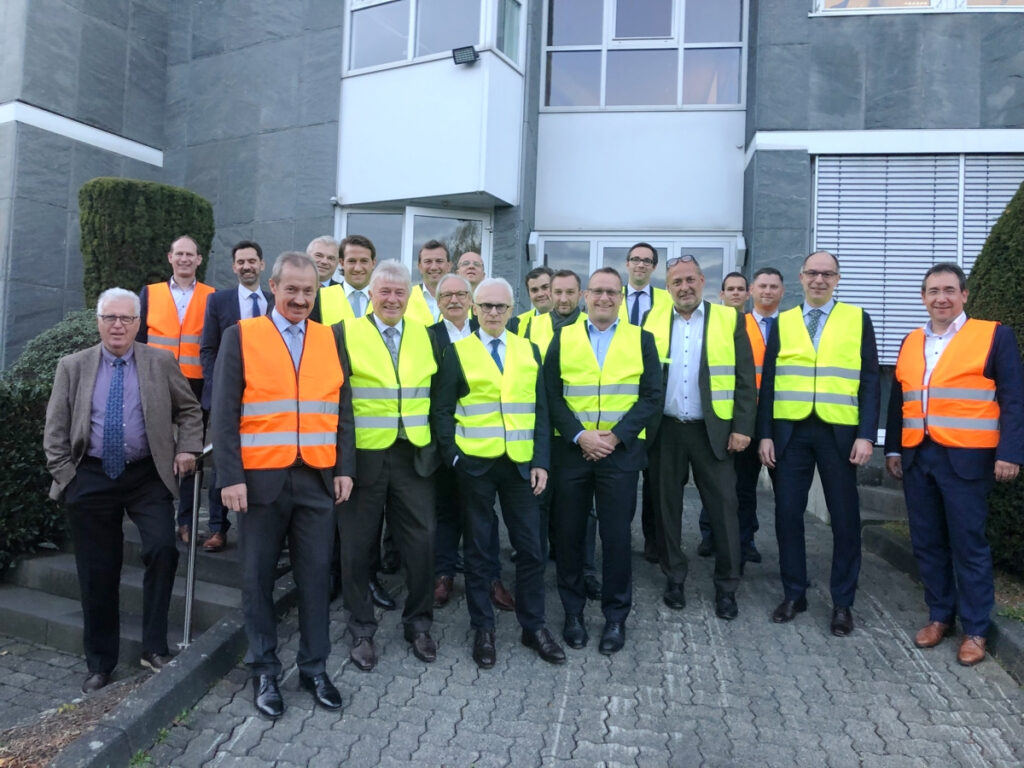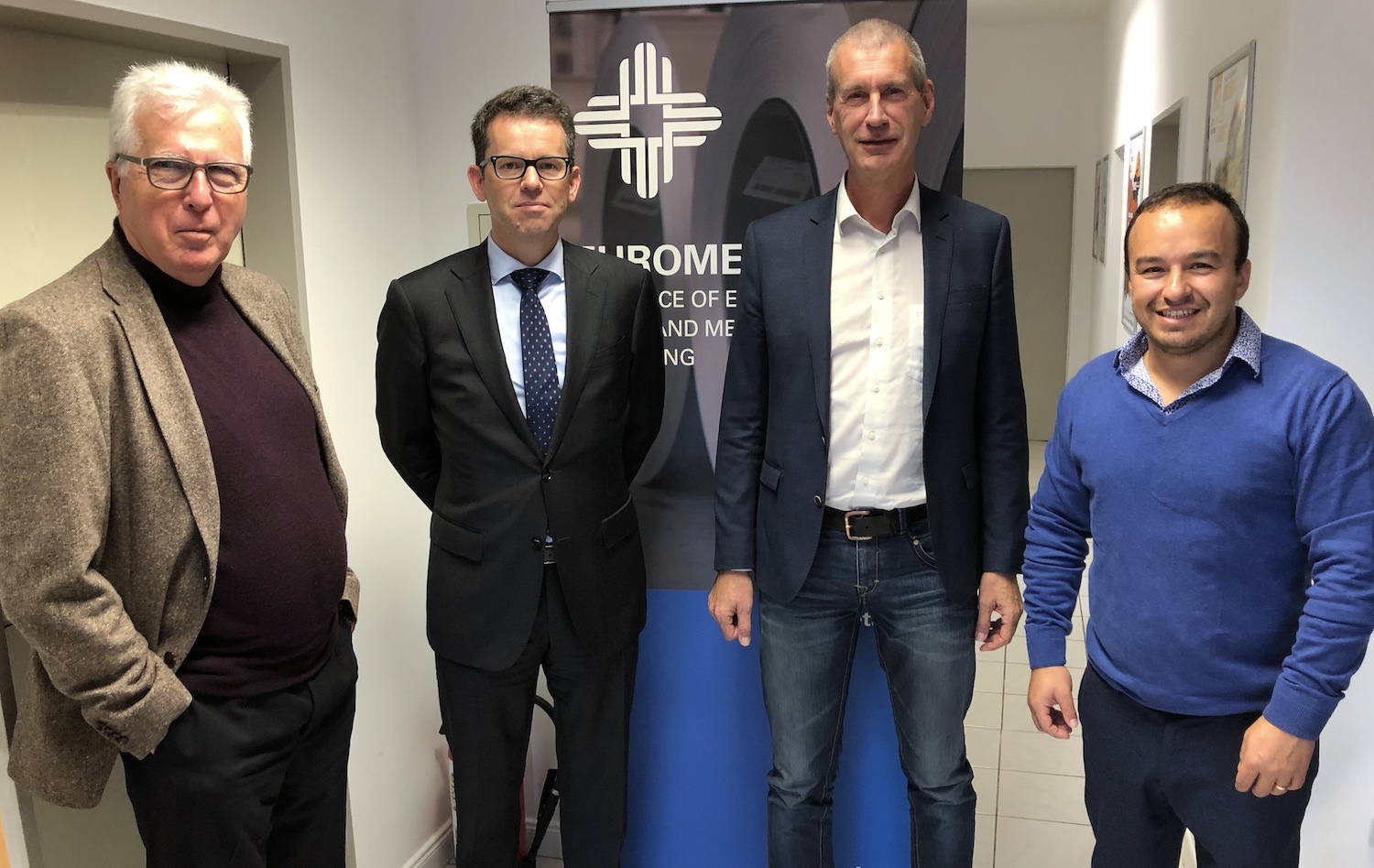
Assofermet sees October scrap stability, HBI sourcing issue
Scrap prices in the Mediterranean were basically stable month-on-month in October but Italian steel trade association Assofermet registered a slight increase by the end of the month, it confirms to Kallanish.
In the Italian domestic market there was also month-on-month price stability but the association saw a substantial interest for the highest scrap qualities and subdued sales volumes for the lower grades for which quotations decreased slightly.
In the domestic market pig iron prices increased slightly. This was caused by low stocks at ports and the lack of fresh seaborne arrivals. As reported, pig iron sales from CIS producers directly to mills and distributors were very low in October due to uncertain international prices.
As far as hot-briquetted iron is concerned, prices remained stable compared to September. The HBI sourcing issue, however, persisted in October, Assofermet concludes.

The Port of Rotterdam and EUROMETAL meet in Luxembourg
The Port of Rotterdam is presently investigating opportunities to improve its position as a steel port handling semis and finished steel products.
On that behalf, Robert Jan Timmers and Hugo de Mez, from the Breakbulk Business of the Port of Rotterdam Authority were received in Luxembourg at EUROMETAL office on 12 November for an exchange of view on topics of common interests.
Main agenda points of the meeting were:
- Today’s position of distribution and trade in the value chain of steel
- Future outlook on steel consumption in North West Europe
- Impact of EU steel surveillance measures and EU steel trade cases on steel imports and exports
- Digital steel trade platforms and their link to logistics platforms in order to optimize steel supply chains
- Today’s position of the Port of Rotterdam as perceived by steel trade and distribution companies
Finally, the Port of Rotterdam confirmed that it would be candidate to host a next EUROMETAL International Steel Trade Day, in Rotterdam at the Port Conference Center, to be convened in 2019.

German construction activity continues to gain momentum
Germany’s construction industry received orders in July amounting to €7 billion ($8.1 billion). This is not only 10.1% above July 2017, but also the highest level ever registered, Kallanish learns from federation Hauptverband des Deutschen Baugewerbes (HDB).
July orders represented the highest monthly total during the first seven months, which was up 7.9% year-on-year, so “… we are remaining optimistic for the coming months,” said HDB’s managing director, Dieter Babiel.
Revenues reached €35 billion over January-June, the highest since 1995. The order backlog is 4.1 months which also marks a historic high.
Of the three groups residential, public and commercial construction, it is the latter that has proven the most powerful driver in the mix with orders in July up 17.6% y-o-y. It is arguably also the group that uses most structural steel. A major factor here has been funds released by railway company Deutsche Bahn for investments, from which many subcontracted companies benefit.
Residential construction also saw an increase of 17.5% in July following a temporary slowdown. Public construction was lagging behind with a y-o-y dip recorded in the month. However, investment in roads is strong showing an on-year increase of 10.4%. This contradicts somewhat the claims heard at this week’s EUROMETAL conference, that infrastructure spending in Germany does not keep up with increasing transport volumes.
HDB has indirectly confirmed a shortage highlighted at EUROMETAL however, which concerns the lack of personnel at public offices to handle project planning.

EU HRC: Mills cut spot prices to move product
The northwest European hot-rolled coil (HRC) market was not immune to weakening global prices today, despite a raft of trade measures in place and firm raw material costs.
With Italian producers actively looking to sell spot product into the Benelux region at around €520-525/t delivered, northern mills were under pressure. Material from one Italian mill in particular was being offered at very competitive levels into northern Europe as it tried to strengthen its order book.
A tier-1 seller in the northwest was heard to be exporting into north Africa at $560-580/t (€496.85-514.00/t) cfr, depending on destination, as it looked for alternatives to offset slow domestic buying — although some said that this was normal business and not dictated by the market environment.
Domestically, customer enquiries were increasing but not translating into actual transactions, with people fishing for price quotes rather than looking to book, one German trader said. “We’re in discussions with customers, but they are not desperate to buy,” he said, adding that the softness was confined to spot business.
Demand was seasonally slow, with buyers not wanting to build stocks heading into the year-end. At the same time inventories were already sufficient, with further destocking and service centre margin compression expected in the next few weeks.
Concerns over the automotive market remained. “People are a little bit nervous around automotive contracts and demand, which will not be as buoyant as [the] past three years, where we saw 5-6pc growth,” one seller said.
A service centre source said construction activity could also slow into next year, which would impact consumer goods, and flat steels, as well as longs. Something had to give, with costs strong and finished steel prices falling, a trader said.
Despite the rundown in global coil pricing, imports were less of a threat as the reduction in domestic prices closed the arbitrage. And the weakening of the euro relative to the dollar — on the back of concerns over the Italian government’s clash with the EU — reduced import competitiveness further. One trader said €510/t cnf Antwerp was a workable price today.
The inaugural Argus daily northwest Europe HRC index was published at €535/t ex-works today.
Summary of market activity heard by Argus
- HRC-EU: German trader estimates tradeable value close to €510/t ex-works
- HRC-EU: Benelux-based seller estimates tradeable value close to €530/t ex-works
- HRC-EU: UK-based trader estimates tradeable value of southern EU material at €500/t ex-works
- HRC-EU: Offer for northwest Europe material at €570/t cfr Egypt, according to UK-based trader
- HRC-EU: UK-based trader bought at €520/t ex-works two weeks ago
- HRC-EU: UK-based trader estimates tradeable value of imported HRC at €510/t cnf Antwerp

Tibnor to acquire Sanistål’s steel distribution business
SSAB’s subsidiary Tibnor has agreed to acquire the steel distribution business of the Danish company Sanistål A/S, Denmark’s second largest steel distributor. This supports SSAB’s strategic target to strengthen its Nordic home market position. The steel distribution business now being acquired had sales of around SEK 1.8 billion in 2017. Subject to the approval of the Danish competition authority, the transaction is expected to close in the early part of the second quarter of 2019.
“Acquisition of Sanistål’s steel distribution business will complete Tibnor’s Nordic footprint by increasing our market presence in Denmark, where we currently are not so visible. The product offering of Tibnor and Sanistål complement each other well, and we see substantial synergy potential,” says Mikael Nyquist, President of Tibnor.
A cornerstone of SSAB’s strategy is leadership in the Nordic home market. SSAB’s subsidiary Tibnor plays an important role in maintaining this position. Steel distribution channels today account for more than half of the total Nordic steel market. The acquisition will considerably improve the position of Tibnor in Denmark. For SSAB, a stronger steel distribution channel provides an attractive channel to grow steel sales, and will also improve the ability to manage business cycles.
Based on the acquisition, SSAB and Tibnor expect annual synergies of approximately SEK 50 million to be realized within three years, in addition to strengthening the platform for SSAB’s Nordic steel business and increasing working capital efficiency. Tibnor is acquiring Sanistål’s steel distribution business as an asset deal at net value of approximately SEK 630 million. The acquisition is expected to be earnings and cash flow accretive from closing.
The acquisition includes Sanistål’s modern and highly automated steel distribution center (42,000 m2) in Taulov and three other sales offices in Denmark as well as a sales office in Latvia. As part of the transaction, around 130 employees will transfer to Tibnor.

SSAB boosts SmartSteel with Kemppi cloud-based welding software
SSAB continues to evolve its SmartSteel project, launched in May of this year, the high-strength steel specialist tells Kallanish. The latest development involves using cloud-based platforms to streamline base material handling in welding production. This is being carried out in partnership with Finnish welding specialist Kemppi whose welding management software is being used.
The Swedish steelmaker and Kemppi have integrated their respective SmartSteel and WeldEye cloud-based platforms to streamline the handling of the complex array of information to document the welding process.
Collecting welding documentation is time-consuming, SSAB says. Documents have to be collected from different source systems and documenting the welding process is done manually. WeldEye, Kemppi’s welding management software, strives to make the process smoother. It does this by collecting welding parameters digitally from workstations. and even by adjusting the welding equipment according to digital welding procedure specifications (dWPS). To automate the process one step further, SSAB now offers their SmartSteel data through an interface (API) to be used in the procedure.
“Building cloud-based platforms is a new way of doing business together,” says Niko Korte, senior manager of Digital Business Development at SSAB. “We are working our way towards the Internet of Materials. Every initiative like this takes us one step closer to creating a digital identity for steel and complete traceability. We are excited about the future and look forward to partnering with others to create it.”
Following the successful pilot, SSAB customers who are already using Kemppi’s WeldEye software can get automatic material information from the SmartSteel cloud. New partners are also welcome to contact SSAB in order to start developing new services around SmartSteel, the high-strength steel specialist says.

Sweden’s Tibnor moves to expand distribution in Denmark
Sweden’s SSAB tells Kallanish that its subsidiary Tibnor has agreed to acquire the steel distribution business of the Danish company Sanistål A/S, Denmark’s second largest steel distributor. This supports SSAB’s strategic target to strengthen its Nordic home market position, the steelmaker says.
Sanistål’s steel distribution business had sales of around SEK 1.8 billion ($199m) in 2017 and the transaction is expected to close in the early part of the second quarter of 2019. The deal is subject to the approval of the Danish competition authority, SSAB confirms.
“Acquisition of Sanistål’s steel distribution business will complete Tibnor’s Nordic footprint by increasing our market presence in Denmark, where we currently are not so visible. The product offering of Tibnor and Sanistål complement each other well, and we see substantial synergy potential,” says Tibnor president Mikael Nyquist.
The acquisition will considerably improve the position of Tibnor in Denmark. For SSAB, a stronger steel distribution channel provides an attractive channel to grow steel sales, and will also improve the ability to manage business cycles, the steelmaker says.
Tibnor is acquiring Sanistål’s steel distribution business as an asset deal at net value of approximately SEK 630 million. The acquisition is expected to be earnings and cash flow accretive from closing, SSAB adds. Based on the acquisition, SSAB and Tibnor expect annual synergies of approximately SEK 50 million to be realised within three years.
The acquisition includes Sanistål’s steel distribution centre (42,000m²) in Taulov and three other sales offices in Denmark as well as a sales office in Latvia. As part of the transaction, around 130 employees will transfer to Tibnor.

Polish distributor foresees strong demand following construction growth
Konsorcjum Stali (KS) expects continued strong steel demand in Poland after the country’s nine-month-through-September construction output rose 19.8% on-year. This confirms the Polish Steel Association (HIPH)’s projections of 2-3% annual demand growth in the coming years, the firm says. It will come despite a slowdown in Polish Gdp growth next year to 3.5% from 4.5% in 2018.
EU policy on trade barriers will have a significant impact on the Polish and European steel industries in the upcoming period. “Although quotas are supposed to prevent the growth of imports in the long term, they could temporarily destabilise the market – for example, (EU) imports in the third quarter this year rose 10% on-year,” KS says in a report seen by Kallanish.
KS reported a 20% on-year increase in third-quarter revenue to PLN 484.9 million ($128.1m), while net profit rose 18% to PLN 11.6m. The quarter saw a rising price trend for all products, as well as strong demand thanks to a large number of investments in construction, according to the firm. Moreover, a lack of competitive import offers and the application of EU quotas supported higher prices.
In the nine months through September revenue grew 23% on-year to PLN 1.4 billion and net profit increased 14% to PLN 28.75m.
KS sold over 630,000 tonnes of steel in 2017. It has three reinforcement fabrication plants with a combined capacity of 15,000 t/month. It also has two steel structures plants and a coil service centre. This is in addition to 13 sales offices around Poland.

Verantwortungsbewusster Stahl
Anlässlich der EuroBLECH 2018 sprach Jochen Grünewald, Managing Director Flat Products bei ArcelorMittal Commercial Germany, über das Projekt „Responsible Steel“, das sein Unternehmen mit gegründet hat. marketSTEEL hatte Gelegenheit, einem Interview mit Herrn Grünwald und Alan Knight, Head of Sustainability, zu folgen:
marketSTEEL: Was bedeutet „Verantwortung“ in Bezug auf die Stahlproduktion?
Jochen Grünewald: Mit ResponsibleSteel verfolgen wir einen konsensorientierten Ansatz, um wirklich zu
definieren, was “Verantwortung” in der Praxis für die Stahlindustrie bedeutet. Natürlich haben wir unsere eigenen Ansichten, wir halten es jedoch für wichtig, einen gemeinsamen, globalen Ansatz und eine Definition über einen Multi-Stakeholder-Prozess zu vereinbaren. Dies ist der Kern dessen, was ResponsibleSteel mit seinem Performance Standard erreichen wird.
marketSTEEL: Was bedeutet “Verantwortung” in Bezug auf die Beschaffung von Rohstoffen?

Alan Knight: Um zu sagen, dass unser Stahl “verantwortlich” ist, müssen wir sicher sein, dass die Rohstoffe, die wir verwenden, auch aus verantwortungsvollen Quellen stammen.
Auch hier verfolgen wir einen Multi-Stakeholder-Ansatz und arbeiten daran, mit unseren Kunden, Lieferanten und der Zivilgesellschaft einen Konsens darüber zu finden, was die verantwortungsbewusste Produktion und Beschaffung von Rohstoffen bedeutet.
Wir unterstützen zwei Zertifizierungsinitiativen, die speziell im Bergbau arbeiten – die
Initiative “Towards Sustainable Mining” und die Initiative “Responsible Mining Assurance”.

marketSTEEL: Welche anderen Organisationen beteiligen sich an ResponsibleSteel?
Jochen Grünewald: Derzeit gibt es 10 offizielle Mitglieder, wobei viele weitere Organisationen an den
Standardsetzungs-Arbeitsgruppen teilnehmen. Die derzeitigen Mitglieder sind:
ArcelorMittal, BlueScope Steel, Daimler, BMW, das Carbon Disclosure Project, Fauna & Flora International, die Material Efficiency Research Group, die Internationale Union für Naturschutz, die HSBC Bank und die IndustriALL Global Union.
marketSTEEL: Wann wird die ResponsibleSteel-Zertifizierung auf dem Markt verfügbar sein?
Jochen Grünewald: Wir erwarten, dass die Standortzertifizierung Ende 2019 verfügbar sein wird.
ArcelorMittal ist das weltgrößte Stahl- und Bergbauunternehmen; es ist in über 60 Ländern präsent und industriell in mehr als 20 Ländern aufgestellt. Der eigenen Philosophie folgend, sicheren und nachhaltigen Stahl zu produzieren, ist das Unternehmen der führende Lieferant von Qualitätsstahl auf den bedeutenden globalen Stahlmärkten.
Autor: von Hans Diederichs

EUROMETAL Regional Group SSC Austria, Belgium, Germany, Netherlands and Switzerland meets in Neunkirchen

EUROMETAL regional work group of SSC from Austria, Belgium, Germany, Netherlands and Switzerland gathered in Neunkirchen(NRW) on last 08 November.
The meeting was hosted by EMW Stahl Service on the historical site of the Schäfer founding family.
Jens Lauber, EUROMETAL president, did chair the meeting.
At the start of the conference, Alexander Bartsch from Henseler + Partner, a compliance lawyer, introduced the assembly to the strict EUROMETAL compliance guidelines, governing any of EUROMETAL’s meetings and events.
Michael Mockenhaupt, CEO of EMW Stahl Service, presented the history of EMW Stahl Service as well as the associated companies of the Schäfer group.
Guest speaker to the meeting was Dietrich Böntgen, Head of Sales of XOM Metals. Dietrich Böntgen gave a broad overview on present status of digitalization in steel distribution & SSC. He considered that digitalization has done already considerable progress in steel distribution and trade in Asia, Russia, the Balkans and Austria. Southern Europe seems to be lagging behind for the time being. A major problem for the progress of digitalization are the many different existing ERP systems which make it difficult and expensive to find solutions for matching ERP systems of upstream, midstream and downstream. On the other side, the rise of “Generation TOUCH” as well as servicing low volume proximity customers in a more efficient way will be pushing for the digital transformation of steel distribution business. As a strategic step forward in digital transformation would be considered the linking and combination of e-shop platforms with e-logistics platforms. An animated debate followed the presentation.
Another point on the agenda were Quality management and Claim management.
EUROMETAL presented to the participants the latest statistics and charts regarding steel distribution and SSC market monitoring, the position of SSC in the steel supply chains as well as key bench marks, the structure of SSC business.
A last point of the meeting was present situation and eventual developments of EU steel safeguard measures and anti-dumping steel trade cases.
As a matter of fact the meeting noted that regarding flat steel products, the increase of non-EU imports during the first 9 months of 2018 represented only +1,0 %, leaving little if any room to a speculation that former flat steel imports to the USA, or other destinations, might have been deviated to the European Union in the wake of US section 232 and protectionist measures elsewhere.
The meeting concluded with a site visit of EMW Stahl Service.




